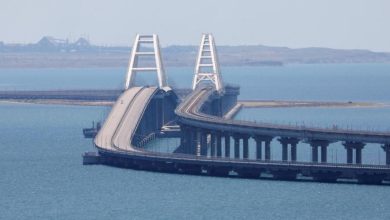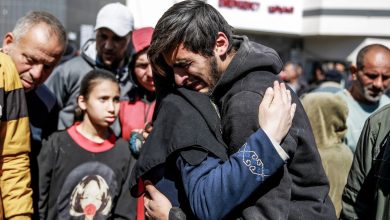Karol Nawrocki Wins Polish Presidency with 50.89% of Vote
Karol Nawrocki has won Poland’s presidential election by a razor-thin margin, signaling a potential conservative pivot that could stall liberal reforms and reshape the nation’s relationship with the European Union.
Backed by the nationalist Law and Justice party, Nawrocki’s victory hands him veto power over legislation and places him at odds with Prime Minister Tusk’s pro-EU administration.
Poland has elected a new president following a dramatic and closely watched runoff election that may reshape the country’s political direction for years to come. Karol Nawrocki, a 42-year-old conservative figure and first-time presidential contender, emerged victorious by a narrow margin, defeating his opponent Rafal Trzaskowski, the liberal mayor of Warsaw.
The final results, announced by the National Electoral Commission early Monday morning, showed Nawrocki securing 50.89 percent of the votes cast. Trzaskowski, representing the centrist Civic Coalition, followed closely with 49.11 percent. The high voter turnout, which reached 71.63 percent, underscored the intense national interest in the race and the deep divide among Polish citizens over the country’s future.
Nawrocki’s win marks a significant political shift and places him in a powerful position within Poland’s political system. As president, he now holds the authority to veto legislation passed by parliament, which could pose major challenges to the ruling government’s agenda. This is especially significant given that Prime Minister Donald Tusk’s pro-European Union administration does not have the supermajority needed to override a presidential veto.
Supported by the right-wing Law and Justice party (PiS), Nawrocki ran a campaign heavily centered on national identity, sovereignty, and conservative social values. He positioned himself as a defender of Poland’s traditions and portrayed his candidacy as a bulwark against what he described as overreach from Brussels. Throughout his campaign, he expressed skepticism about closer ties with the European Union and criticized immigration policies, arguing for stricter controls and a reduction in support for Ukrainian refugees.
Nawrocki also voiced opposition to Ukraine’s accession to both the European Union and NATO, a stance that has drawn concern from international observers. His victory is likely to test Poland’s diplomatic ties with Kyiv and could disrupt its previously strong alignment with the West on issues related to regional security and support for Ukraine in its ongoing conflict with Russia.
During his election-night speech, Nawrocki addressed a cheering crowd of supporters with a message of victory and resolve. “We will win and we will save Poland,” he declared, repeating one of the slogans that defined his campaign. He emphasized themes of patriotism and protection of Polish values, pledging to uphold what he called the “true spirit” of the nation.
Outgoing President Andrzej Duda, who had previously endorsed Nawrocki, offered his congratulations on social media, reinforcing the continuity of conservative leadership in the presidency.
However, Nawrocki’s rise to power has not come without controversy. His past has drawn criticism and scrutiny from various quarters. Allegations have surfaced related to his time working as a security guard, as well as disputed property transactions and unconfirmed associations with football hooligan groups. Nawrocki has consistently denied any wrongdoing and dismissed the accusations as politically motivated attacks designed to undermine his candidacy.
Adding a layer of international intrigue to his campaign, Nawrocki made headlines with a visit to the United States shortly before the election. During the trip, he is reported to have received informal encouragement from former U.S. President Donald Trump. Additionally, U.S. Homeland Security Secretary Kristi Noem attended a conservative summit in Poland where she publicly offered her support to Nawrocki, a move that further drew the attention of foreign media and policy analysts.
The implications of Nawrocki’s win are already being analyzed both inside and outside Poland. Domestically, his presidency is expected to act as a counterbalance to Prime Minister Tusk’s efforts to liberalize Poland’s policies. Trzaskowski, the defeated candidate, had campaigned on progressive reforms including expanded rights for the LGBTQ+ community, improved access to abortion, and a stronger alignment with the European Union on rule-of-law issues.
Trzaskowski’s loss is being seen by many analysts as a setback for liberal forces in Poland, especially those advocating for judicial reform, democratic oversight, and greater civil liberties. His campaign had hoped to harness growing urban and youth support to shift Poland toward more inclusive governance, but the narrow loss highlights the enduring strength of conservative values among large swaths of the population, particularly in rural areas.
Looking ahead, political observers suggest that Nawrocki’s presidency could deepen ideological divides in the country. There are growing concerns that his leadership might embolden the Law and Justice party to push for early parliamentary elections in a bid to regain full control of the legislature. Such a scenario could intensify political tensions and stall any efforts to reconcile the contrasting visions held by Poland’s liberal and conservative blocs.
Internationally, the European Union will be watching Nawrocki’s administration with caution. Brussels and Warsaw have already clashed in recent years over judicial independence, media freedom, and migration policy. Nawrocki’s win is likely to add friction to these already strained relations, and some EU officials fear that Poland might drift further from core European norms.
At the same time, Poland remains a vital member of NATO and a critical hub for Western military and humanitarian support to Ukraine. Nawrocki’s approach to these responsibilities will be crucial in determining whether Poland continues to act as a reliable partner within the alliance or begins to carve out a more isolated, nationalistic path.
Karol Nawrocki’s election signals the beginning of a new chapter in Polish politics, one marked by competing visions of the nation’s identity, its role in Europe, and its place in the global order. With a presidency capable of reshaping legislation, foreign policy, and civil society, all eyes will be on how Nawrocki chooses to wield his newfound power.



